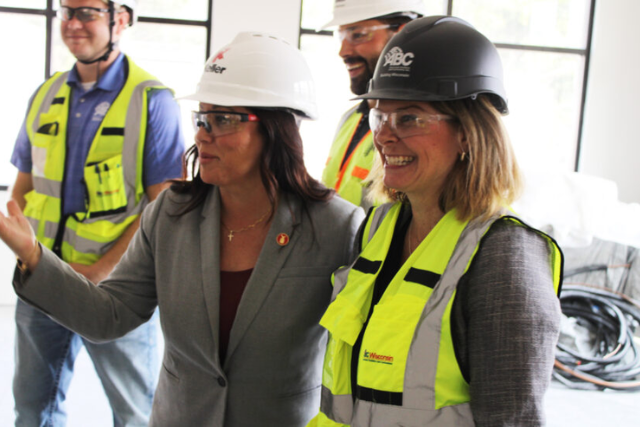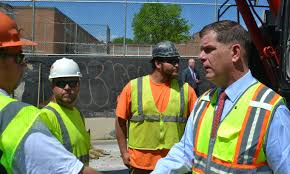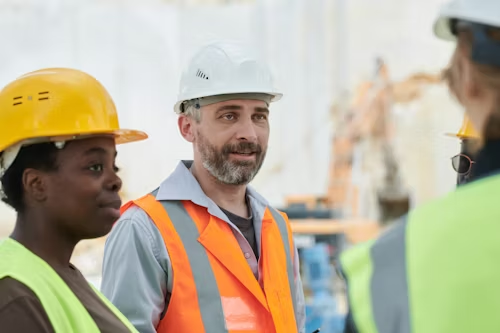
As part of her nationwide “America at Work” listening tour, U.S. Labor Secretary Lori Chavez-DeRemer visited a veterinary clinic under construction in Mequon, Wisconsin, to hear firsthand about workforce challenges from local builders and state officials.

The tour brought together federal and state representatives, including U.S. Reps. Glenn Grothman (R–Glenbeulah) and Scott Fitzgerald (R–Juneau), as well as State Rep. Paul Melotik (R–Grafton). They joined Chavez-DeRemer to walk through the 10,887-square-foot Wisconsin Veterinary Referral Center project, which will feature seven exam rooms, four surgical suites, an emergency treatment area, and specialized imaging and pharmacy facilities.
Hosted by the Associated Builders and Contractors (ABC) of Wisconsin and general contractor Keller Inc., the tour marked Chavez-DeRemer’s first stop in the state and one of over 20 visits she has made across the country this year. Her goal: gather direct feedback from the skilled trades and employers on the front lines of labor and workforce development.
“We want to make sure people have the ability to have the skills they want, have mortgage-paying jobs, and provide for their families, so we’re upscaling apprenticeship programs,” Chavez-DeRemer said.
Labor shortages remain a major concern. According to the Associated Builders and Contractors, the construction industry will need an additional 439,000 workers by 2025 to meet demand. The U.S. Bureau of Labor Statistics pegs the median age of construction workers at 42, and a wave of retirements is expected in the coming decade.
Chavez-DeRemer emphasized the Department of Labor’s commitment to working with community colleges, technical schools, and centers of excellence to expand access to high-quality training and career pathways.

“We want the employees to have a choice, and we want every state to have their choice in what they want to do,” she said. “My goal as labor secretary is to support all American workers.”
She added, “There will be organized labor, there will be private sector. We want the employees to have a choice.”
Apprenticeships are a key strategy. Construction and manufacturing continue to lead the state in apprenticeship enrollments, followed by healthcare, agriculture, and education. According to a Wisconsin Policy Forum report, trades like electricians, plumbers, carpenters, and laborers have at least 1,000 active apprentices each.
ABC Wisconsin, which primarily represents non-union firms, reported over 2,500 apprentices enrolled this year across its member companies and technical colleges. More than 1,500 pre-apprenticeship program participants have gone on to join construction trades in 2023 and 2024.
Another key player in Wisconsin’s workforce development is WRTP | BIG STEP, a Milwaukee-based nonprofit with union affiliations. The organization trained approximately two-thirds of pre-apprenticeship program graduates during the same period. Their programs serve urban centers like Milwaukee, Madison, and Racine, and even draw participants from 32 counties and northern Illinois.
Chavez-DeRemer also highlighted job creation under the Trump administration, stating, “There had been more than 500,000 jobs added since Trump took office, more than half coming from the private sector.”
However, recent federal data shows job growth has slowed. The Bureau of Labor Statistics reported only 73,000 new jobs in July, with construction employment holding steady.
Despite challenges, officials praised the Mequon veterinary facility as an example of workforce collaboration and training in action. The clinic employed workers from 18 trades, including many apprentices, and is expected to be completed and turned over to the owner in October.
The Secretary’s visit comes at a pivotal time for the construction sector, which is facing a generational transition in its workforce. Industry groups are urgently pushing for policies that expand training opportunities and reduce regulatory bottlenecks that slow project timelines.
Apprenticeship programs, both union-affiliated and merit-based, are increasingly being seen as crucial tools to close the skills gap—offering career pathways that avoid the debt often associated with four-year colleges.
While Secretary Chavez-DeRemer kept a neutral stance on labor unions during her visit, her emphasis on worker choice and collaboration across sectors reflects the Biden administration’s broader goals of balancing economic growth with inclusive workforce development.
In Wisconsin, where both union and non-union programs play major roles, the effort to ramp up apprenticeship training has become a bipartisan priority, with lawmakers from both parties emphasizing the need to fill growing labor gaps across healthcare, skilled trades, and infrastructure.
Originally reported by Ethan Duran in The Daily Reporter.